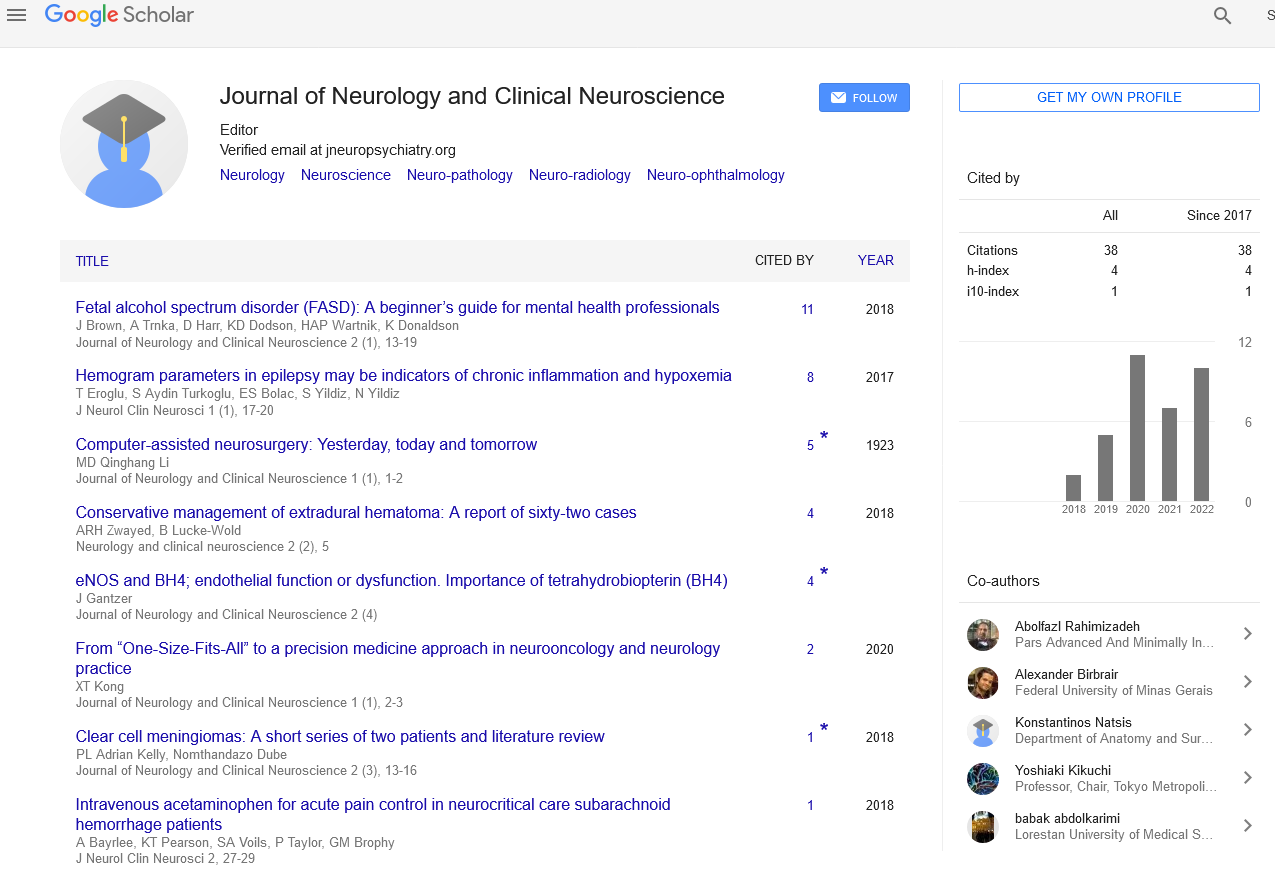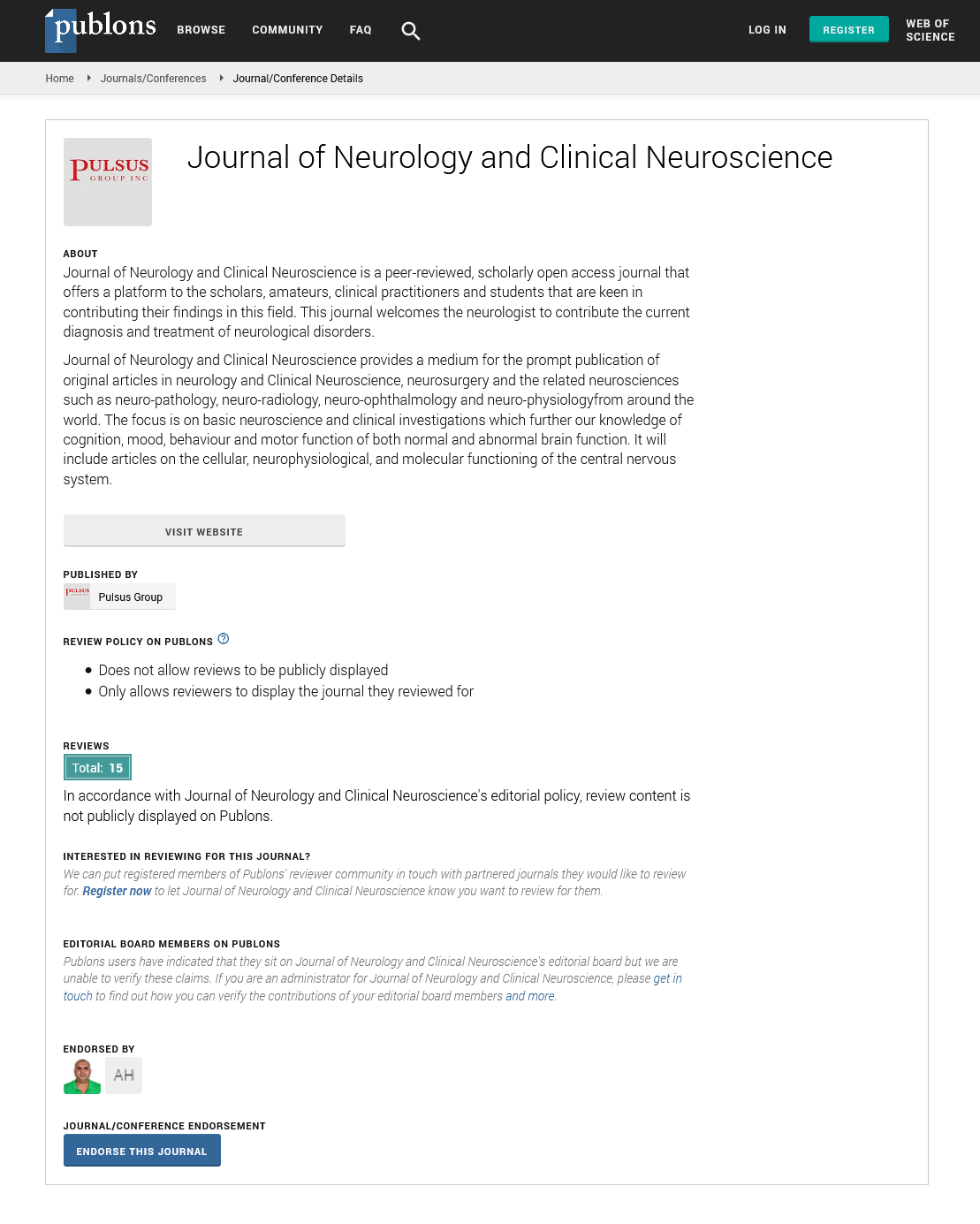Sign up for email alert when new content gets added: Sign up
Anxiety and Cognitive Impairment: A Theoretical model of the connections between the Pre-Frontal Cortex, the Amygdala and the Hippocampus in the model
Webinar on 7th International Conference on Neuroscience and Neurological Disorders
March 18-19, 2022 | Webinar
Gary Sinoff
University of Haifa, Israel
ScientificTracks Abstracts: J Neurol Clin Neurosci
Abstract :
Anxiety is widely recognized as probably the most common mood disorder in the elderly, with a prevalence ranging from 10% to 20%, a prevalence greater than for depression. During the last years, the interaction between neuropsychiatric syndromes, anxiety and depression, and cognition has been widely researched in view of the fact that these symptoms have been reported not only to accompany memory loss especially in the early stages of cognitive decline but also possible predictors of future cognitive decline. The debate is intensified by studies showing that in both anxiety and depression, and not only in cognitive decline have shown neuroanatomical changes in the brain: increase in Aβ in the amygdala as well as in the hippocampus, atrophy of hippocampus and amygdala, neurofibrillary tangles, APOEε4 carriers. Since cognitive decline now has become a major burden to society, if one could delay the decline by initiating treatment as early as possible, the savings, for both the individual and society, would be significant. Anxiety is inter-related and inseparable with loss of memory and has sometimes been shown to be a predictor for future cognitive decline. Theoretically, this may be explained by Braak and Braak’s staging with changes initially in the entorhinal cortex, spreading to the hippocampus and amygdala and finally to the cortex. This theoretical model helps understand the interaction between anxiety in the elderly and cognitive decline.
Biography :
Gary Sinoff completed his MD degree at Witwatersrand University in South Africa, and then MA and PhD at Haifa University, Israel. He completed his specialization in Family Medicine in 1985 and in Geriatric Medicine in 1997. He was appointed deputy director of Geriatric Department and director of the Cognitive Clinic at Carmel Medical Center in Haifa from 1998. His area of research has included the study of anxiety in the elderly and its interaction with depression and cognitive decline, publishing many articles in these fields. Prof. Sinoff is a member of the Geriatric Society of Israel and Israel Gerontology Society for many years, having served on the board of both societies. He was initially a lecturer in Geriatric Medicine from 2001 and appointed Assistant Professor of Medicine in The Technion- Israel Institute of Technology in 2011. He also was appointed a lecturer in Gerontology from 2004 and appointed senior lecturer in Department of Gerontology in the Faculty of Social Welfare and Health Sciences at University of Haifa since 2012.





